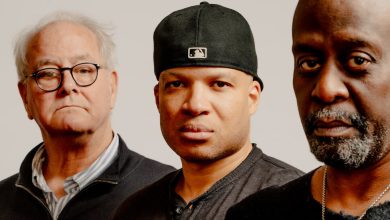Michael Long, N.Y. Conservative Party Stalwart, Dies at 82

Michael R. Long, the devout ideologue who for three decades headed New York State’s Conservative Party — which in 1994 provided the winning margin to elect the state’s only Republican governor in the last 50 years — died on Sunday at his home in Breezy Point, Queens. He was 82.
The cause was kidney failure, his protégé and successor as the state party chairman, Gerard Kassar, said.
Mr. Long was a fierce opponent of abortion rights, gay rights, same-sex marriages and higher taxes to pay for more spending by government, but he was generally respected and even liked by his political opponents as a man of principle who, by his consistency, had earned their trust.
He was the longest-serving chairman of the state Conservative Party, from 1988 through early 2019, after heading the party’s organization in Brooklyn.
He also served as an at-large city councilman from Brooklyn from 1981 to 1983, when the boroughwide position was abolished. He was the only Council member elected as a Conservative.
In November 1994, George E. Pataki, a Republican state senator, toppled the liberal Democrat Gov. Mario M. Cuomo, who was seeking a fourth term, by drawing more than 300,000 votes on the Conservative Party’s ballot line.
Its endorsement was a gamble: The party chose to paper over Mr. Pataki’s relatively permissive views on abortion and gay rights, but Mr. Pataki delivered on his vow to cut taxes and provided patronage appointments in state government to Conservatives, giving them greater influence over spending and other policies.
Michael Robert Long was born on Feb. 1, 1940, in Brooklyn to Michael T. Long, who worked at different times for the Pennsylvania Railroad and the New York Stock Exchange, and Elmira (Nuetzel) Long, a supervisor for Blue Cross Blue Shield.
He was raised in Queens, where he dropped out of Richmond Hill High School shortly before graduation in 1959 to join the Marines.
New York’s 2022 Elections
As prominent Democratic officials seek to defend their records, Republicans see opportunities to make inroads in general election races.
- N.Y. Governor’s Race: Following the overturning of Roe v. Wade, the issue of abortion rights has the potential to be a potent one in the battle between Gov. Kathy Hochul and Representative Lee Zeldin.
- 10th Congressional District: Half a century after she became one of the youngest women ever to serve in Congress, Elizabeth Holtzman is running once again for a seat in the House of Representatives.
- 12th Congressional District: As Representatives Jerrold Nadler and Carolyn Maloney, two titans of New York politics, battle it out, Suraj Patel is trying to eke out his own path to victory.
“I just was that kind of a kid,” Mr. Long told The New York Times in 1999. “There were times when they were talking about throwing me out of school. And then I wound up on the honor roll.”
“I was just contrary,” he added. “So I guess I’ve been contrary all my life.”
He served in the Marines until 1961. In 1963, he married Eileen Dougherty. She survives him along with their sons, Michael, Matthew, James, Robert, Christopher, Francis and Edward; two daughters, Eileen Chelales and Maureen Hayes; 24 grandchildren; and five great-grandchildren.
The Conservative Party in New York was founded in the 1960s by J. Daniel Mahoney and Kieran O’Doherty, Wall Street lawyers and brothers-in-law who sought to tilt the state’s Republicans to the right. In this they followed the pattern of the Liberal Party, which would leverage its endorsement of Democratic candidates — sometimes providing the margin of victory in close races — to nudge them to the left (and exact patronage once they were elected).
Mr. Long, who ran a liquor store with his brother in Bay Ridge, Brooklyn, where he lived, was of a different breed of political leader: He was politically savvy, able to hold his own in any debate, but unlike many a standard politician, he was passionately committed to causes and unwilling to make transactional endorsements.
In 1964, he volunteered to work in Barry Goldwater’s Republican presidential campaign and enrolled as a Conservative voter.
The New York party achieved a stunning and unparalleled success in 1970 when James L. Buckley, William F. Buckley Jr.’s brother, was elected United States senator in a tight three-way race. He remains the only Conservative candidate who won a statewide race without the Republican nomination.
In 1980, Conservative support helped Alfonse M. D’Amato defeat an incumbent senator, Jacob K. Javits — the last of the original Rockefeller Republicans — in the Republican primary, leading to Mr. Javits’s unseating that November.
Mr. Long was elected Conservative Party leader in his Brooklyn Assembly district in 1968 and Kings County chairman four years later, serving until 1988. In 1974, he was chosen as state vice chairman.
Despite his endorsement of Mr. Pataki in 1994, in 1997 he refused to endorse Rudolph W. Giuliani’s campaign for re-election as mayor of New York City because of the mayor’s liberal positions on social issues. Instead, he left the Conservative ballot line vacant and said he did not vote in the election. (In 1989, when Mr. Giuliani barely lost the mayoralty to David N. Dinkins, and in 1993, when Mr. Giuliani narrowly defeated Mr. Dinkins, the Conservative Party fielded its own candidates.)
When the State Legislature passed the Marriage Equality Act in 2010, Mr. Long declared that no candidate who supported same-sex marriage would be allowed to run on the Conservative Party line.
His political counterparts vigorously contested his ideological arguments, but generally respect his consistency in an era of expedient waffling and pandering.
“There’s something almost refreshing about it, though I profoundly disagree with him,” Judith Hope, the former chairwoman of the state Democratic Party, said in 1999. “It’s rare to see what appears to be a principled stand from a party.”
In 1990, the Conservative Party came perilously close to becoming what Mr. Long considered a typical political party.
When the Conservative candidate for governor, Herbert London, campaigned as aggressively against the Republican nominee, Pierre A. Rinfret, as he did against the incumbent Democrat, Mr. Cuomo, Mr. London drew more than 800,000 votes, or 20 percent of the total, nearly outpolling Mr. Rinfret.
“That was a little scary,” Mr. Long said at the time. Had Mr. London beaten Mr. Rinfret, the Conservatives would have dislodged the Republican Party from second place on the state ballot for four years and, Mr. Long asserted, “there would have been an infusion of people changing their registration, and you would have seen other players trying to take over the party.”
“It would have become totally a political party and lost its vision,” he said.
He added, “We’ve always understood that the Conservative Party is a philosophical movement, more than a political party.”





